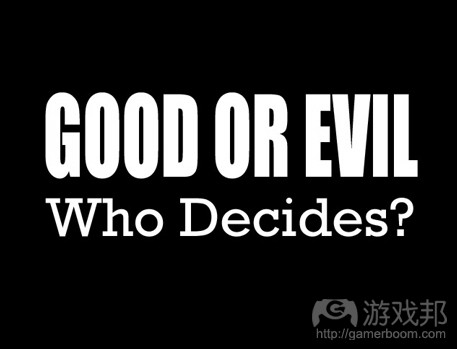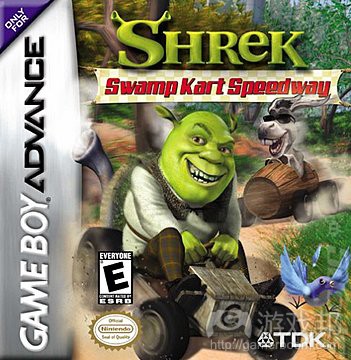开发者该如何避免游戏越过道德界限?
作者:Patrick O’Luanaigh
你可能会纳闷,为什么需要纠结“好vs坏”的问题?你只是在创造游戏,并且足以应付所有工作而无需担心任何道德问题。
但事实上,如果你发行了自己的免费游戏,那么你的团队便成了销售员。你的设计师和程序员需要决定多久告诉玩家一次销售更新。你的广告文案将决定如何描述最新的虚拟道具。你的团队将讨论如何不让玩家感到负担而增加盈利。
如今,大多数玩家都不是在游戏商店或超市的娱乐区购买游戏,而是直接在游戏中做出购买决定。他们会投入大量情感于游戏中。不管是发行商或商店店员都不能剥夺他们的这种情感。如果你对玩家撒谎,你便需要承担起相关责任。
销售员这一角色在很早之前便出现了。有些销售员既诚实又开朗,愿意听取客户的意见并做出适当的回应。但是有些销售员却做不到这些。例如BBC的电视节目《Watchdog》便清楚地呈现出销售员们很容易越过道德界限,对一些年长的女性顾客施压,夸大产品的性能,并利用情感和心理手法强行将产品推销给一些没有购买欲望的顾客。
因为我们现在是直接在游戏中进行销售,所以我们需要明确这里的道德界限是什么。也就是所谓的“好vs坏”。不是基于游戏内容(如《侠盗猎魔》vs《My Little Pony》),而是基于业务模式以及游戏对于玩家来说是否公平。每一款游戏都曾对玩家撒过慌,不管是“完全利用”还是说着“这是一款完全免费且让人着迷的游戏”。而我将尝试着去明确道德界限,因为我相信,只要待在界限正确的一面,我们便能获得更多利益,并推动玩家更乐意为游戏花钱。
所以,“利用玩家”到底意味着什么?这种利用在游戏产业中已经不是什么新鲜事了。例如《史莱克沼泽赛车》。毫无疑问,这是一款很糟糕的游戏,有人将其描写为:“这是我所评价过的最糟的游戏,没有其二。游戏设计非常懒散,并且不存在任何乐趣。”但却有30多万个小孩非常喜欢这款游戏,并愿意将自己辛苦积攒的生日红包都投资于此。我认为创造出一款糟糕的游戏并基于孩子们的喜好而赚钱便是一种利用。
让我们转向免费游戏。幸运的是,《史莱克沼泽赛车》所使用的方法将不再奏效。艺电的John Riccitiello在去年10月份说道:“社交游戏玩家不会再花钱掉进陷阱中了。”因为现在玩家都会玩至少一个小时的游戏才选择是否花钱,所以糟糕的游戏将不可能获得利益。
不幸的是,现在仍存在许多利用玩家的方法。例如:
*在应用内部购买中移除货币标志,让玩家感觉自己好像不是在花真钱似得
*故意瞄准那些意志力薄弱的玩家
*利用玩家的强迫症
*利用游戏中的情感时刻对玩家实施硬行销售(例如“你那可怜的小狗刚刚去世。看看它那小脸蛋!你只需要花费99便士便能让它复活了!”)
*使用“Derren Brown(游戏邦注:英国的心理学研究者和魔术师)”式的灌输和隐蔽劝说技巧
*使用“不断解说直到对方挂断电话”式的推销技巧
*夸大游戏/购买内容
*让儿童游戏中的“导师”角色变成推销员
还有一些游戏例子越过了这条界限。很遗憾的是,大获成功的Zynga免费游戏便包含在内。因为他们将ARPU看得比玩家的满足感和游戏体验还重要。对于他们来说,金钱始终摆在第一位。如此便会导致许多玩家在停止玩Zynga游戏时会对之前的投入感到后悔,而再也回忆不起之前的正面游戏体验。
这便是测试开发者的游戏是否跨越道德界限的主要方法。
在完成游戏时玩家是否会对之前的购买行为感到后悔?或者他们很乐于玩游戏并为其花钱?
如果你的游戏属于第一种情况,你便站在了道德界限的错误一端。而站在正确一端的游戏开发者不仅能够创建起更加强大的玩家社区,同时还能够推动更多玩家喜欢自己的游戏。慷慨地对待玩家有助于提高游戏的留存率,推广病毒式传播,并长期赚得更多利益。
也有一些游戏做得很好。艺电的《Simpsons: Tapped Out》便是很好的例子。虽然游戏中所设置的价格有点高,但即使玩家未花钱也能体验到高质量的游戏内容。但是如果玩家真心喜欢《Simpsons》并希望看到其它角色/建筑,他便可以通过花钱而获得。这款游戏长达多月都待在最畅销的iOS游戏的位置上,我认为它也是艺电最成功的免费游戏。
所以开发者到底该怎么做?让玩家自己判断是否为游戏花钱,而不欺骗他们。避免完全专注于受参数引导的设计。虽然参数很重要,但是游戏设计和游戏测试也同样重要。确保当你们在创造第一款免费游戏时,所有团队成员都能负起完全的责任。开发免费游戏就像是在公众面前表演舞蹈,如果你半心半意,玩家便不会欣赏你的表演。
(本文为游戏邦/gamerboom.com编译,拒绝任何不保留版权的转载,如需转载请联系:游戏邦)
Good vs Evil – how to make money from free-to-play without selling your soul
By Patrick O’Luanaigh
You may be thinking, why should I care about “good and evil”? I just make games. I have enough to deal with without worrying about morals.
But the truth is that, if you publish your own free-to-play titles, your team are becoming salesmen. Your designer and your coder may be deciding right now how often to display messages to players telling them about your latest sale. Your copywriter might be deciding exactly how to describe the new gold vacuum cleaner virtual item in next week’s build. Your team may be discussing how hard to push players to increase monetisation without upsetting them.
Right now, a huge number of gamers are not making a spending decision in a GAME store or supermarket entertainment section. They’re making a spending decision in the middle of your game. They’re emotionally invested in your game. There are no publishers or shop staff to divest responsibility to. If you cheat, lie or trick your players, you’re the one the blame.
Salesmen have been around since the dawn of mankind. Some are honest and open, listen to the customer and react accordingly. Some aren’t. Take a look at TV shows like Watchdog, and it’s pretty clear how easy it is for salesman to cross the moral line, and start pressuring old ladies, lying about their products and using emotional and psychological trickery to push a sale on someone that doesn’t want it.
Since we’re now selling directly to customers from within our games, I believe we need to know where that line is.
I’m talking here about good and evil. Not in terms of game content (Manhunt versus My Little Pony), but in terms of business model and how fair the games are to consumers. Every game ever made lies somewhere on the axis between ‘complete exploitation’ and ‘an amazing game, completely free’. I’m going to try and identify my ‘line in the sand’ along this axis. I believe that falling on the right side of the line can help you make more money and have a happier more invested playing community.
Of course, if you want to try and rip people off to make a fast back, you should aim to be on the left hand side of the line. That decision is up to you.
So what does “exploiting players” look like? Well, exploitation has been around in the industry for a very long time. Let’s take one of many, many possible examples – Shrek: Swamp Kart Speedway. There is no doubt that this was a really bad game. It has been described as follows: “With almost no exception, it is the worst game ever to be reviewed. It’s simply the most cynically created, idly designed and unbelievably unenjoyable title. Superman on the N64 makes this game look good.” Yet 300,000 kids who loved Shrek picked this off the shelves and spent their hard-saved birthday money on this. I think that releasing a game this bad based on a popular kids license is exploitation.
Let’s move into free-to-play gaming. The good news is that the ‘Swamp Kart Speedway’ approach simply can’t work anymore. EA’s John Riccitiello said last October that, ‘with social games, consumers won’t pay for crap’. And he’s right. Since most people play a free-to-play game for at least an hour before they spend anything, a crap game simply won’t make money.
Sadly, there are lots of other ways of being exploitative. For example,
Removing currency signs from in-app purchases to make it appear that you’re not spending real money
Deliberately targeting players with weak impulse control
Tapping into OCD
Using emotional game moments to hard-sell to players (“your poor fluffy puppy has just died. Look at his little face! It’s only 99p to bring the poor fella back to life…. ”)
Using ‘Derren Brown’ style implanting and covert persuasion techniques
“Keep pushing until they hang up” style sales techniques
Exaggerating or lying about your game/purchasable content
Having ‘mentor’ characters in kids games become salesmen
There are many examples of games which I feel cross the line. And sadly for F2P, our first major success story, Zynga, fell on the wrong side of the line in my opinion. Why? For me, it’s because they appear to prioritise ARPU over player satisfaction and a rewarding gameplay experience. Money is #1, everything else is secondary. I believe this leads to many players regretting the money they have spent when they stop playing a Zynga game, rather than looking back on a positive experience.
This leads me to a really easy way of testing whether you’re on the right side of the ‘line in the sand’.
Does the player regret their purchases when they finish playing?
Or are they glad they played the game and spent the money?
If your game falls into the first category, I think you’re on the wrong side of the line. And I strongly believe that being on the ‘good’ side of the line helps you build a stronger community who love your company. Being generous to players improves retention, virality and makes more money in the long term.
And it can be done well. A great example is ‘Simpsons: Tapped Out’ by EA. It doesn’t push content down your throat. The prices are a little high, but the game doesn’t feel crippled unless you spend money. You can play it without spending money. But if you love The Simpsons and want to see extra characters/buildings, you can spend money to do so. And it works beautifully. It was the #1 grossing iOS game for several months, and I suspect it has become EA’s most successful F2P game.
So how can you do it right? Allow true fans to spend lots of money without tricking players into spending. Aim to delight gamers by making sure you don’t focus exclusively on metrics-led design. Metrics is really important, but so is gameplay design and gameplay testing. And make sure your team are fully committed when you create your first F2P game. Developing a F2P game is like dancing in public; if you do it half-heartedly, it isn’t going to work.(source:gamesbrief)



























.jpg)














 闽公网安备35020302001549号
闽公网安备35020302001549号